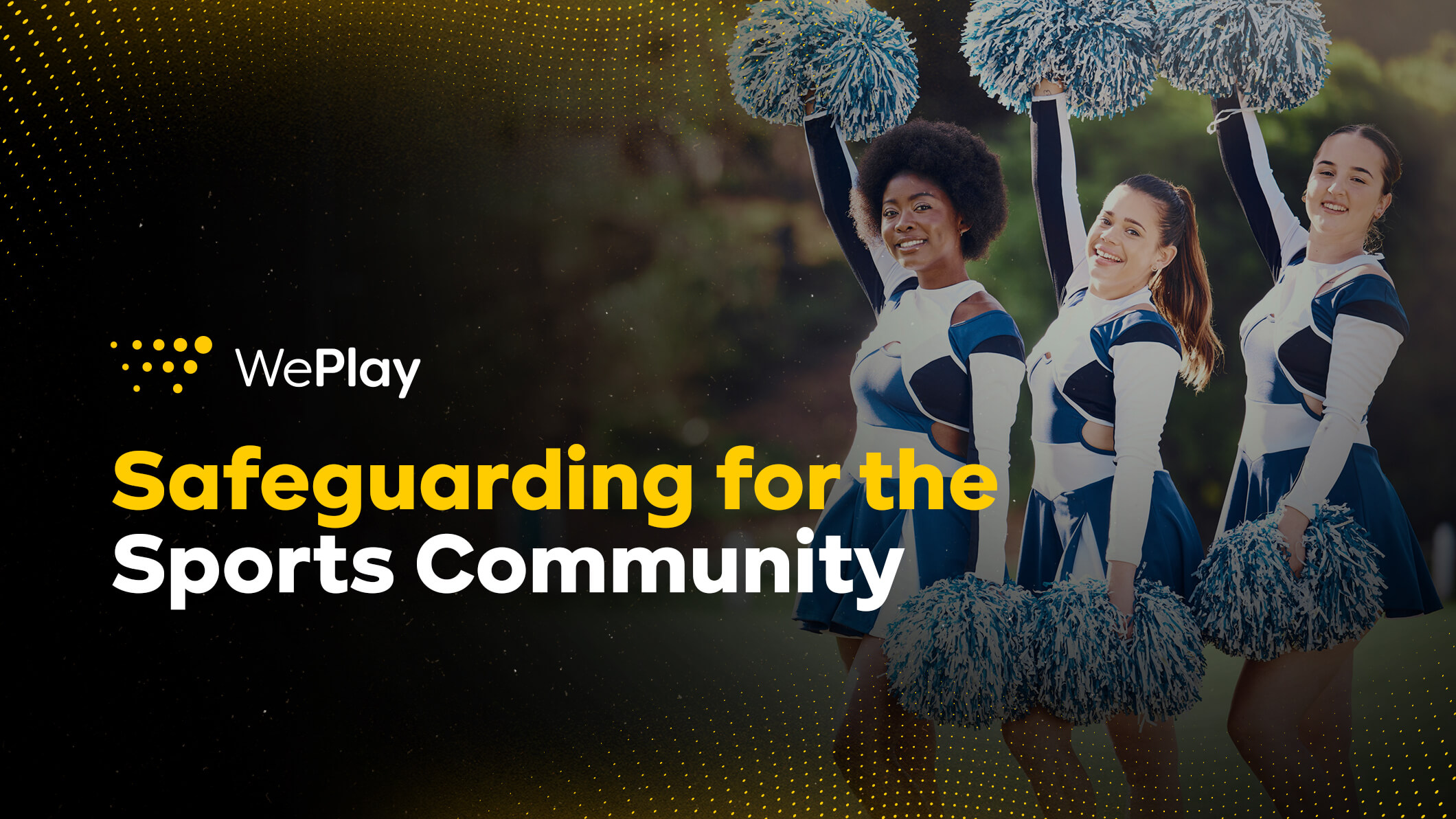
Safeguarding for the Sports Community
Shining a light on the sports industry
At WePlay, we believe that being part of the sports ecosystem comes with a responsibility to drive meaningful change. As an agency that is passionate about all sports at all levels, we’re committed to shining a light on the issues that matter, not just for elite athletes, but to the long-term health and inclusivity of sport itself. Following a recent event with We Are Girls in Sport, one of the key conversations that’s taken root at WePlay HQ is around athlete safeguarding: how safety, wellbeing, and protection are directly impacting participation levels across all levels of sport. It’s a topic that deserves more attention, and one we’re proud to explore and elevate
Why Athlete Safeguarding Matters
Athlete welfare has rightly become a central focus for professional sports teams globally. However, recent discussions around player safety, including interviews with the Lionesses and the ordeal faced by Emma Raducanu in Dubai early this year, highlight the urgent need to improve athlete safeguarding at all levels. While progress is being made, ensuring that sports environments are safe, inclusive, and supportive for all athletes remains a critical challenge.
What is Athlete Safeguarding?
Athlete safeguarding refers to the policies, practices, and cultural values that protect athletes’ physical, mental, emotional, and psychological well-being. However, safeguarding is more than just a regulatory requirement; it must be embedded into the core values of sports organisations.
At our recent event, “Squad Safe: A Practical Guide to Athlete Welfare & Culture Change in Cheerleading”, sponsored by WePlay, safeguarding expert and Chair of the Board at SportCheer England Joey Gamper Cuthbert and We Are Girls in Sport Founder Caroline Kings addressed key challenges in athlete welfare. Shockingly, the discussion revealed that many young athletes participate in sports without clear safeguarding measures and emphasised the importance of ensuring that proper safeguarding is installed as part of every team or club’s culture for the continued future of sports participation at all levels.
Key Components of Athlete Safeguarding
For safeguarding to be effective, organisations must go beyond policy documents and implement real, actionable strategies. A strong safeguarding framework should include:
- Clear governance policies to ensure accountability in sports organisations.
- Education and training on safeguarding for coaches, players, and staff.
- Psychological safety measures, including support for mental health and female health.
- A culture of transparency where safeguarding is actively reinforced through leadership.
- Zero tolerance for abuse, discrimination, or exploitation.
At the Squad Safe event, our speakers emphasised that leaders must not only say what they do but also do what they say, demonstrating safeguarding values through consistent actions and proactive engagement.
The Risks of Inadequate Safeguarding in Sport
The importance of safeguarding is evident in the statistics, particularly for ensuring women’s sport’s rapid rise continues through safe access to grassroots sports clubs and opportunities. According to the Women’s Sports Foundation, girls are 1.5 times more likely than boys to drop out of sports by age 14 due to lack of access, safety concerns, and limited opportunities.
Beyond access to sports, cultural stereotypes continue to shape negative experiences for women and girls. As reported by UN Women, sports must align with global best practices to prevent violence against women and girls, ensuring that female athletes feel safe, valued, and supported.
Ensuring Athlete Safety:
WePlay client, The European Club Association (ECA), is playing an important role in athlete protection within football. Through initiatives like the Club Protection Programme (CPP) and the ECA Youth Football Working Group, the ECA is setting new standards in youth development and safeguarding.
ECA’s Key Safeguarding Initiatives:
- Club Protection Programme (CPP): Financial protection for clubs when national team players suffer injuries.
- ECA Youth Football Working Group: Focused on safe youth development, including the protection of minors.
- Education & Training: Equipping young players and coaches with safeguarding knowledge.
- Collaboration with UEFA & Key Stakeholders: Strengthening policy development and athlete welfare programs.
- Advocacy & Representation: Ensuring clubs have a voice in shaping safeguarding policies at the international level.
By prioritizing ethical practices and athlete well-being, the ECA is helping to create a safer and more sustainable future for football.
What Role Does Marketing Play in Athlete Safeguarding?
Marketing plays a vital role in athlete safeguarding at both grassroots and elite levels by raising awareness, shaping policies, and fostering a culture of safety in sport.
- Through targeted campaigns, social media, and digital platforms, marketing helps educate athletes, coaches, and parents on key safeguarding issues such as abuse prevention, concussion awareness, and mental health support.
- Sponsorship and corporate partnerships also drive accountability, as brands increasingly require organisations to uphold strict safeguarding policies.
- Athlete activism – high-profile athletes and influencers can amplify these efforts, advocating for safe environments and policy changes.
- Internal Communication – Additionally, marketing enhances transparency, with organisations using strategic communication to promote reporting mechanisms, hotlines, and whistleblowing policies, thereby building public trust.
- Educational content – At the grassroots level, marketing initiatives help engage local communities through safeguarding workshops, training sessions, and inclusive programs that ensure safe participation for all athletes, particularly those from marginalised groups.
By integrating safeguarding into sports marketing strategies, the industry not only protects athletes but also strengthens the integrity and reputation of sport as a whole.

“At WePlay, we believe that the future of sport is inclusive, safe, and accessible for all. By supporting events focused on women’s sport and athlete safeguarding, we are committed to raising awareness of initiatives that empower athletes, fans, and organisations alike. Our passion for unlocking fan value goes beyond marketing, it’s about shaping a sporting culture where everyone thrives. Together, we can create lasting change.”
Sharon Bennett, Head of Client Services & Women’s Sport Lead at WePlay.
Need more info? Contact us

